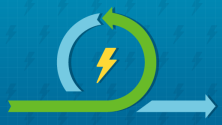WordPress never fails to surprise the web development community. Over time, it has evolved into one of the best Content Management Systems (CMS) out there. And currently, it powers more than 25% of the web. Besides its popularity, WordPress is also known for usability and an easy-to-develop environment.
Some basics
WordPress is an open source CMS licensed under GNU GPLv2.
You can download it and immediately start using it on a hosted website.
Even though it is free to use, the servers and other aspects, like themes and plugins, are not all free. There are paid variants in the market, which helps to keep the ecosystem alive and healthy.
A career in Wordpress development
With no sign of slowing down, WordPress development is a good career choice right now.
WordPress is slowly moving towards JavaScript and React.js, and this gradual change will ensure a healthy growth rate in the future. For those who are new to WordPress, learning PHP, HTML5, CSS3, and JavaScript is a good way to start. These are required to work efficiently with WordPress.
If you've got those tools in your belt and want to know how to succeed in the WordPress development world, here are some advanced tips.
Tips for developing with Wordpress
To be successful, you'll need to learn how to handle your workflow efficiently, understand the core, and know how to do proper debugging.
1. Optimize your workflow
Ever wondered what makes you efficient and effective? It is your workflow. WordPress development is no different, as it requires attention to detail and the ability to optimize your workflow. The top WordPress developers always focus on improving their workflow by using tools for testing, automating, and more.
Awakekat, a coder from the United States, is an excellent WordPress developer with a total stream time of 716 hours on Livecoding. She is efficient at her work and uses tools to optimize her workflow. Experimenting with the environment is also a good way to find the sweet spot of an optimal workflow. In the end, the workflow customization is based on your preference and requirement, so choose accordingly.
2. Learn about WordPress Core
Next, you've got to know intimately what you're working on. Understanding the Core will give you unlimited power to handle your WordPress projects. It is common for developers to start at the beginning and dig into complexities as you go along. After all, that’s the most natural way of learning about any technology. The most amazing part of understanding WordPress Core is that you can contribute to it. Read the Core Contributor Handbook to get started.
3. Understand the Wordpress ecosystem
Find out what the difference is between WordPress.org and WordPress.com.
Understand how free plugins and themes impact WordPress. Generally, paid themes and plugins are better than the free ones. As a developer, you need to understand why this is so, and why some free plugins are of poor quality.
Understanding the ecosystem can help you take advantage of it, and ensure that you push your career in the right direction. For example, you can publish free themes and plugins to the WordPress repository to understand user needs, then move to paid theme development. Also, contributing to the ecosystem will help you build your portfolio.
4. Get familiar with Wordpress debugging
Debugging is an integral part of programming, and it is no different with WordPress development. You can get started with the official debug guide on WordPress codex. Later on, you can make the journey easier by moving to debug tools.
5. Follow WordPress best practices and guidelines
WordPress coding standards will help you get started. It is vital to adopt the guidelines and best practices early in your development then make workflow changes later on, as these best practices will keep your code clean, updated, and easy to work with.
6. Start learning React.js
React.js is moving to WordPress slowly but steadily. A great post by Chris Hutchinson, Newsroom Developer at The Times & The Sunday Times, explains how React.js can improve WordPress for the better. He cleverly utilizes WordPress Rest API and creates a simple version of the Twenty Sixteen WordPress theme. To remove the limitation of the API, he utilizes 3rd party plugins to draw menu and other key theme elements.
7. Start learning JavaScript
There is no doubt that WordPress is a bad implementation of PHP, but it does work anyway. To remove the shackles and make it more ready for the future, Matt Mullenweg, the co-founder of WordPress, asked developers to learn "JavaScript deeply." The implications are clear as WordPress is starting to move fully towards JavaScript, and is already using the language for frontend purposes.







Comments are closed.